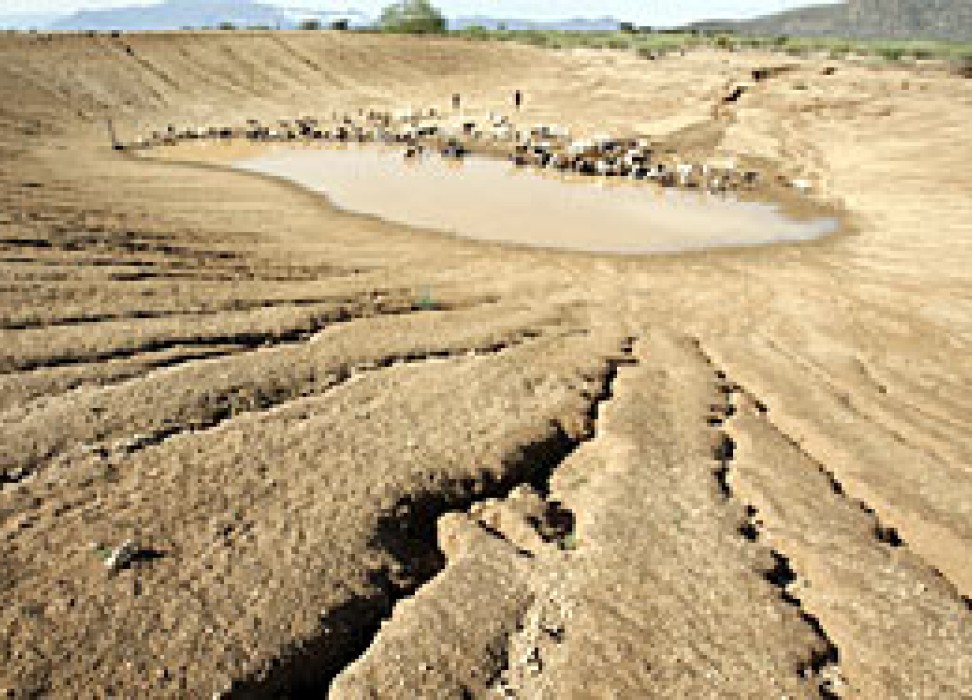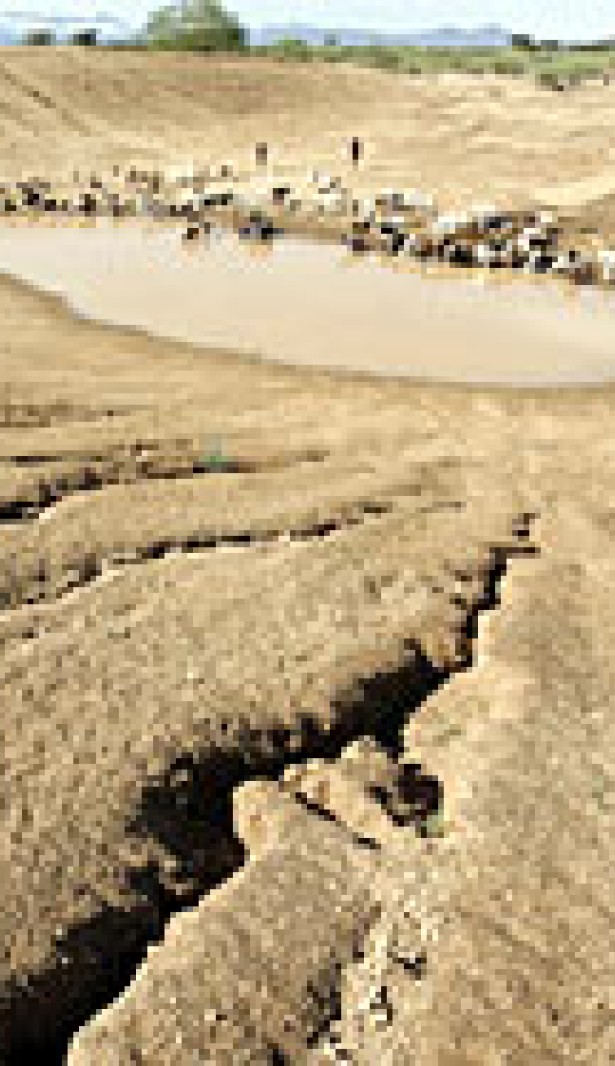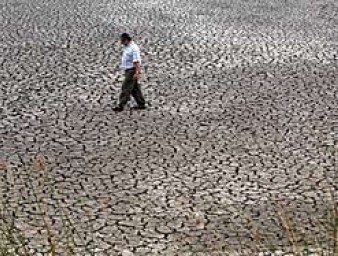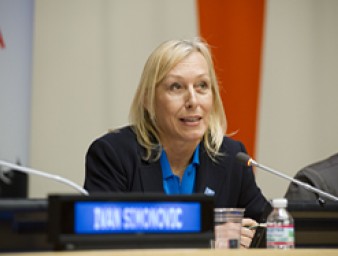Human rights at the centre of climate change policy
11 October 2011

“We felt that the international debate on climate change was becoming bogged down in the science of risk and projections, line graphs edging ominously into the future.
It was almost completely ignoring the unfolding human tragedy of climate change,” said Mohamed Nasheed, President of the Republic of Maldives.
President Nasheed was speaking at a high level side event of the UN Human Rights Council whose discussions included ways of promoting a rights-based approach to climate change policy.
UN Human Rights Deputy High Commissioner, Kyung-wha Kang, speaking at the event, emphasized the need to place human rights at the centre of all policy responses to climate change.
“The adverse effects of climate change can already be felt in many areas with direct negative impact on the enjoyment of human rights, such as in agriculture and food security, biodiversity and ecosystems,” Kang said.
Kang recalled that, according to a UN Human Rights study on the relationship between climate change and human rights, climate change cannot be considered simply in terms of the environment and the economy. It also has implications for human rights such as “the rights to life, to food, to safe drinking water and sanitation, to health and adequate housing.”
She referred to the concept of “climate injustice” in the study and said that many of the least developed countries and small island states will endure the worst effects of global warming despite contributing the least to global greenhouse gas emissions. The study highlights the need for international cooperation to address the unequal burden falling on those who are least able to carry its weight.
Meanwhile, President Nasheed noted that a Human Rights Council resolution makes it clear that all climate change policies and actions should respect human rights.
The challenge now, he said, is to make sure these words are translated into real improvements in climate change responses.
The effects of climate change will cause mass displacement and increase the prevalence of conflicts, warned former UN High Commissioner for Human Rights Mary Robinson, who was also speaking at the event.
Robinson, describing her recent trip to Somalia in the Horn of Africa, said climate change was a contributing factor to the famine declared by the United Nations in July this year.
East Africa’s temperature is rising. Prior to 2003 the region never had a year as much as 1 degree Celsius above average, whereas it has now reached this threshold in eight successive years. There are long periods of drought, then, when the rains come, they come are too heavily, resulting in flash flooding.
Robinson recognised the need for a legally binding agreement on climate change, stressing that if climate change is not dealt with, its negative ramifications will include mass displacement and the increasing prevalence of conflicts, which themselves will have far ranging global consequences.
Stephen Humphries, an environmental expert from the London School of Economics,protection of intellectual property rights has detracted attention from the core issue, the implementation of the technology transfer provisions of the United Nations Framework Convention on Climate Change.
By mainstreaming human rights standards into technology needs, one could identify which technologies are most urgently required and by which communities.
In a separate event, the Social Forum, Paul Quintos of the Ibon Foundation, based in the Philippines, described the climate crisis as an ‘existential crisis’, forcing us to re-examine fundamental values and lifestyles, our conceptions of the good life, our social relations as well as our relationship with nature.
Kumi Naidoo, the head of Greenpeace, said: “We have a situation where every delay in the climate negotiations means that we are putting lives of millions of people (at risk) in coastal regions, in small Pacific island States, in places like Darfur where water scarcity and land scarcity has driven conflict, such as what we are seeing in the Horn of Africa, and so on.”
Naidoo said there was the need to recast the climate crisis as a cross-cutting issue where the fuel crisis, the food crisis and the climate crisis are not viewed as separate crises sitting in three silos, and warned that failure by the international community to achieve a fair and legally binding climate treaty would lead to further loss of lives.
The UN Human Rights Council side event “Perspectives on Human Rights and Climate Change” was held in Geneva on 13 September in Geneva; the Social Forum was held on 3 -5 October 2011
11 October 2011

VIEW THIS PAGE IN:


